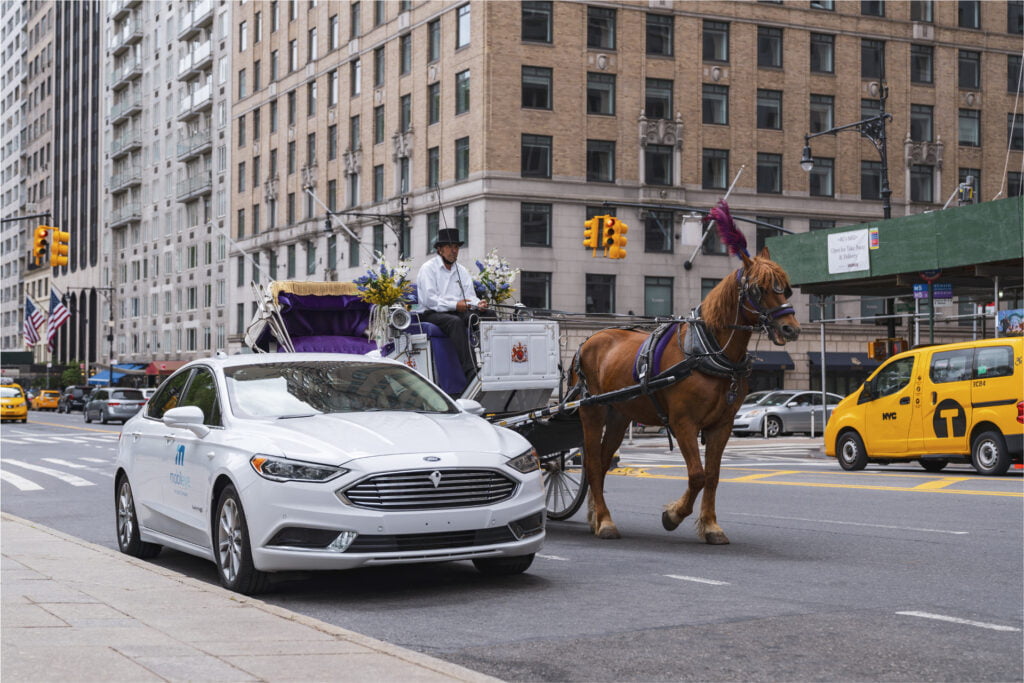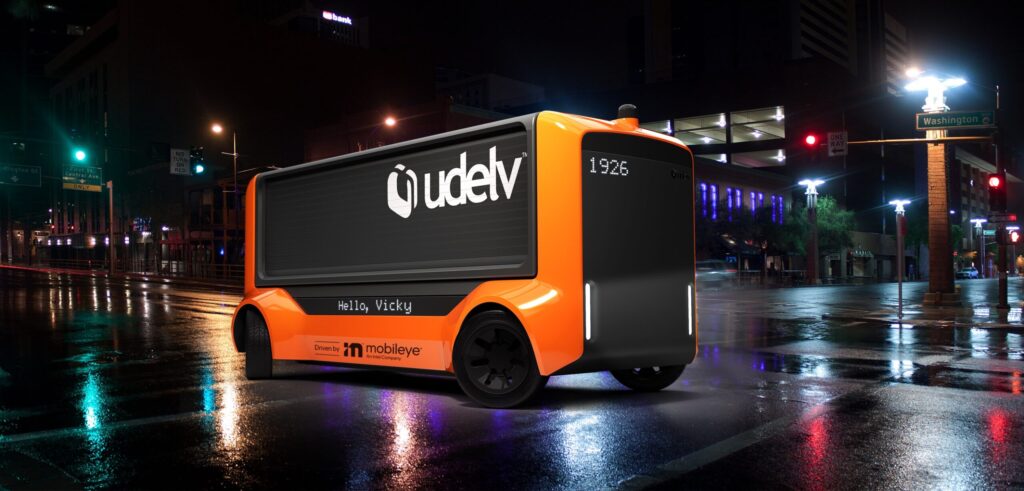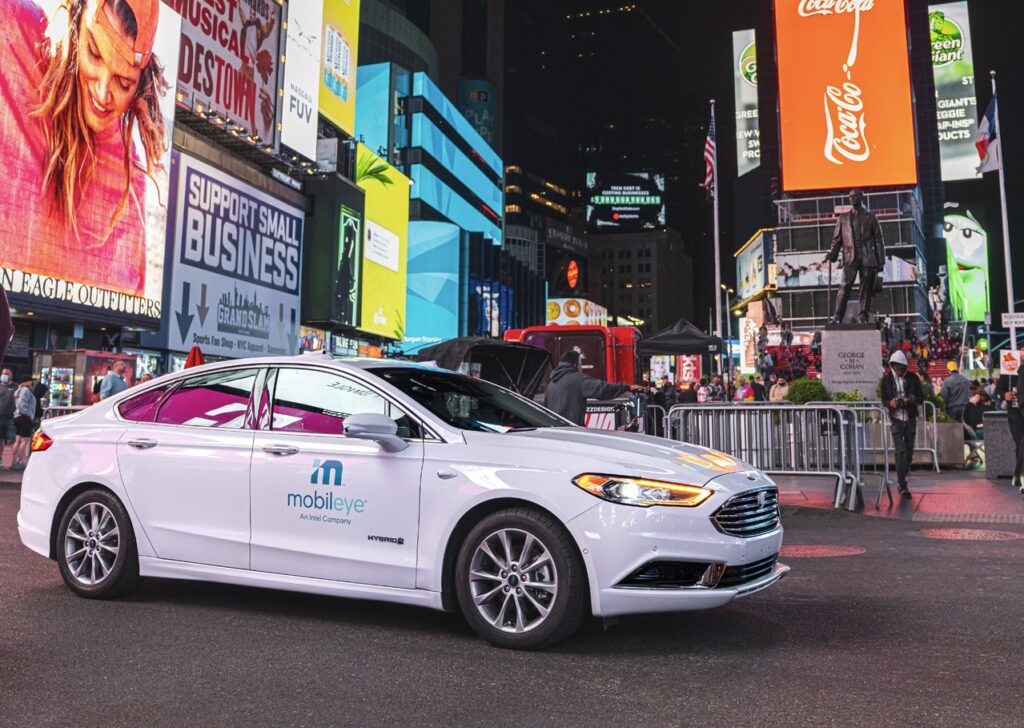Israel’s Mobileye, the developer of driver assistance systems acquired by Intel for $15.3 billion in 2017, released a video this week showing its autonomous driving test vehicle navigating New York City’s busy streets, as part of the company’s larger program to test autonomous vehicles in cities worldwide.
Mobileye has been testing autonomous vehicles (AVs) in a number of metropolitan areas across the globe in recent years including in Jerusalem, Munich, and Detroit, and has plans to launch testing in Tokyo, Shanghai, Paris, and Dubai.
SEE ALSO: Mobileye Teams Up With US Firm For Autonomous Delivery Service By 2023
The newly released 40-minute video shows Mobileye’s test vehicle making its way through traffic-packed roads in Manhattan, into tunnels and over bridges, stopping for pedestrians, maneuvering around cyclists, and navigating double-parked vehicles and construction zones.
Earlier this year, Mobileye received a New York AV testing permit to drive autonomous vehicles on the city’s congested streets – the only company currently holding such a testing permit, the company noted in its announcement. The vehicle is being tested in both day and nighttime conditions and different weather environments.
The test drive in “the largest city in North America and one of the world’s most challenging driving environments” demonstrates “the vast capabilities of its AV technology and proves how its unique approach is enabling rapid geographic and economic scalability,” Mobileye said in its announcement this week.
“Driving in complex urban areas such as New York City is a crucial step in vetting the capabilities of an autonomous system and moving the industry closer to commercial readiness,” said Professor Amnon Shashua, senior vice president of Intel and president and CEO of Mobileye.
“If we want to build something that will scale, we need to be able to drive in challenging places and almost everywhere,” Shashua said during a presentation Tuesday that was streamed live.
Mobileye’s test vehicles use a camera-based self-driving system of level-4 (high automation with a driver in the seat) development AV, and a subsystem that runs on two of the company’s EyeQ5 systems-on-chips (SoCs) processing 13 cameras.
Sign up for our free weekly newsletter
SubscribeMobileye is also working with its Road Experience Management (REM) mapping technology to create high-definition maps of road infrastructures worldwide as the basis for safe autonomous driving. REM technology, a crucial tool for AV deployment, is actively generating data about more than 15 million kilometers of roads daily to build the map and keep it up to date, Mobileye has said. In addition, data from 25 million vehicles is expected to be collected by 2025, in cooperation with various auto manufacturers.

Mobileye at the wheel
Mobileye has been working on a number of solutions to advance autonomous transportation and mobility offerings in recent years.
In addition to its ADAS (advanced driver assistance systems) based on proprietary software algorithms and EyeQ chips which use cameras to interpret the visual field, a lidar system-on-chip (SoC) for Mobileye use in AVs starting in 2025, the company has also been developing a full-stack self-driving system for consumer SVs and robotaxi MaaS (mobility-as-a-service) together with Israeli mobility company Moovit, acquired by Intel last year.
SEE ALSO: Mobileye Takes Autonomous Vehicle For Test Spin In Munich Traffic
In April, Mobileye announced plans to launch driverless delivery services with California-based autonomous vehicle delivery company Udelv. The company’s Mobileye Drive self-driving system, a turnkey solution designed to drive a range of autonomous vehicle (AV) applications (robotaxis, consumer passenger cars, and commercial delivery vehicles) will power Udelv’s electric, self-driving delivery vehicle “Transporter.”
Mobileye and Udelv plan to produce more than 35,000 Transporters by 2028, with a commercial launch beginning in 2023, the companies indicated in the announcement. The deal is believed to be the first large-scale agreement for a self-driving system.

Mobileye is also expected to launch testing for an autonomous taxi (robotaxi) mobility solution in Daegu, South Korea later this year, and will target a commercial launch for robotaxis in Osaka in 2023 together with WILLER, one of the largest transportation operators in Japan.
In February, Mobileye announced partnerships with two French firms to jointly develop and deploy autonomous shuttles for public transportation in Europe in 2023.
Related posts

Editors’ & Readers’ Choice: 10 Favorite NoCamels Articles

Forward Facing: What Does The Future Hold For Israeli High-Tech?

Impact Innovation: Israeli Startups That Could Shape Our Future




Facebook comments